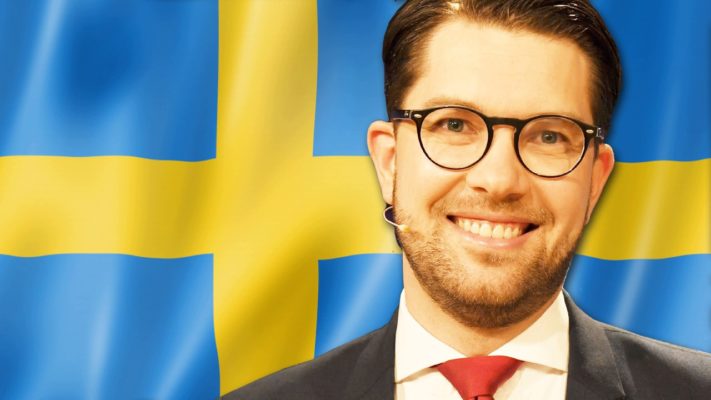
Far-Right Immigration Party Of Sweden Makes Gains
After both the main centrist coalitions failed to win a majority in General elections on Sunday, along with the far-right anti-immigration party gaining a good percentage of the vote, Sweden has been plunged into a political uncertainty.
It could prove to be quite a palaver as the eight parties that won seats in parliament try to build a working government. There will be a conflict between ideology and practicality. Since, either the centre-left and centre-right blocs will have to coordinate to pass legislation, or they will have to compromise on promises to never work with the far-right Sweden Democrats, a party that has roots in the neo-Nazi movement and has capitalized on the nation’s growing migration fears.
Prime Minister Stefan Lofven’s left-leaning bloc emerged with only a slight lead in the general elections. Both Lofven’s Social Democrats, the Greens and the Left Party bloc, as well as the opposition centre-right Alliance, won around 40 percent well short of the required majority.
The prime minister’s party lost 13 seats in parliament – their worst result in a century. Meanwhile, the junior coalition Green party even saw their support fall dangerously close to the 4 percent threshold for participation in the parliament. The results will be finalized on Wednesday and could change before election authorities make them official.
The Sweden Democrats, who have promised to freeze migration and want to take the nation out of the European Union, gained short of the dramatic surge pollsters had predicted. Swedish Prime Minister Stefan Löfven of the Social Democrats, which leads the centre-left bloc, called for cooperation across the political divide and warned against inviting the far right into government. If the ruling coalition fails to form a government it would be a historic loss for the Social Democrats, which have dominated Swedish politics since the 1930s.
Writing on Twitter in the wake of the preliminary results, former Swedish prime minister Carl Bildt of the centre-right Moderates advised Löfven to step down and allow the speaker of parliament to begin preliminary consultations on a new government.
Although the Sweden Democrats did not fulfil predictions in exit polls that it would become the nation’s second-biggest party, its success has confirmed fears that Europe’s rising far-right tide has now reached Sweden, one of the world’s most liberal countries. Support for the far right in Sweden mirrors similar trends in other European nations. Anti-migrant parties in Germany, Austria, Denmark, France, Hungary, Italy and the UK have all made gains in recent years.
Immigration became highly politicized following a steady increase in new arrivals. Akesson and his party had made much of its opposition to Sweden’s immigration policy, which saw 163,000 asylum seekers arrive in the country in 2015. While the number of asylum seekers has dropped since, concerns over pressure on the welfare system, a shortage of doctors and teachers and a rise in some kinds of crime have been main election issues.














